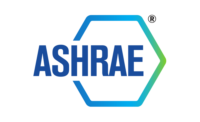HUD, USDA Required to Reference Standard 90.1 under New Energy Bill
WASHINGTON, D.C. – The U.S. Departments of Housing and Urban Development (HUD) and Agriculture (USDA) would be required to meet energy efficiency requirements in ASHRAE/IESNA Standard 90.1 under the federal energy bill signed into law by President Bush on Wednesday.Under existing law, HUD and the USDA are required to write energy-efficient standards for public and assisted housing and housing with federally insured mortgages. Such standards have to be at least as stringent as ANSI/ASHRAE/IESNA Standard 90.1-1989, Energy Standard for Existing Buildings Except Residential, and Council of American Building Officials (CABO)-1992. When either 90.1 or CABO is updated, the agencies have a year to revise their standards, but this has rarely taken place.
Under the new law, HUD and USDA will be required to implement standards at least as stringent as Standard 90.1-2004 or the 2006 International Energy Conservation Code (IECC) for all new construction and rehabilitation of public and assisted housing and housing with federally insured mortgages. Upon revision of 90.1 or IECC, HUD and the USDA have one year to update their standard to meet or exceed the revised requirements. If they do not do so within a year, all new and rehabilitation of housing covered by the federal standard will need to meet the revised IECC or 90.1, following a positive determination by the U.S. Department of Energy and HUD/USDA determination that it would not negatively impact availability or affordability of housing.
“This provides additional validation of the importance of energy savings in Standard 90.1 and also provides a baseline for all public and assisted housing and federally insured mortgage property in all states,” Doug Read, ASHRAE director of government affairs, said.
ASHRAE Provides Technical Guidance on Proposed Depreciation Bill
WASHINGTON, D.C. – ASHRAE has provided technical guidance for proposed legislation that would shorten the depreciation of certain HVAC&R systems.Reps. Melissa Bean (Ill.) and Pete Hoekstra (Mich.) recently introduced HR4574, which would amend the Internal Revenue Code of 1986 to provide a shorter recovery period for the depreciation of certain systems installed in nonresidential real property or residential rental property.
ASHRAE, at the request of Bean, provided language on the depreciation of HVAC&R equipment. The existing depreciation period is 39 years. The proposed legislation would reduce the period to 20 or 25 years, encouraging replacement of equipment sooner that would result in more modern/efficient equipment being installed.
“ASHRAE contributed language that would encourage building owners to replace older, less-efficient HVAC&R equipment with newer, more efficient systems,” Doug Read, ASHRAE’s director of government affairs, said. “Owners also would receive additional incentive to go beyond the minimum efficiencies required in ASHRAE/IESNA Standard 90.1. Replacing this equipment will result in significant energy savings, reduced greenhouse gas emissions, and would encourage the retirement of older chillers that require the use of CFCs.”
ASHRAE Supports Strengthened Building Code Enforcement
WASHINGTON, D.C. - ASHRAE has lent its support to legislation to strengthen building code enforcement, the Community Building Code Administration Grant Act of 2007.The legislation, introduced by Sen. Mary Landrieu of Louisiana and Rep. Dennis Moore of Kansas, would provide federal grants to building departments to enhance public safety. The grant would provide $100 million over five years to help local governments hire, train and equip code officials, including building and fire inspectors.
Moore spoke at a recent Congressional staff briefing, hosted by ASHRAE, which focused on Standards in the U.S. Economy: Energy Efficiency and Safety in Our Buildings.


